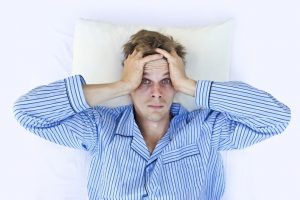COVID-19 and Changing Sleep Patterns

Can’t sleep
May 11, 2020 Obtaining a good night’s sleep is vital daily routine that many people just don’t do. Whether it is due to work, child care, a noisy environment, or something else, unfortunately few Americans make sleep a priority. Additionally, even if people try to sleep more, according to a report from the CDC, about 30% of adults in America still have trouble sleeping most nights. Additionally, 68%, or about 164 million Americans, struggling with sleep at least once a week.
Over the last 3 months of the COVID-19 pandemia sleep changes are just one of the innumerable daily activities that have been impacted by the virus. In a report from late March 2020, by the makers of Fitbit(TM), they found that their sleep tracker app was reporting major changes in sleep patterns of millions of Americans.
“People are going to bed later but getting more sleep, as well as more quality rest. For those whose quality of sleep has improved, they have been spending more time in deep and REM sleep” They also noted the importance of adequate sleep. “Your body recharges while you sleep, both repairing and building tissue and muscle. Levels of the stress hormone cortisol fall during the evening. And, getting your recommended seven to nine hours a night also boosts your immunity—something that’s more important than ever right now. “
From a report about one month later by the Smithsonian in late April 2020, researcher began to study other more ominous changes in sleep patterns. Various sleep study centers around the world reported increasingly strange and vivid dreams from those who entered their second month of stay-at-home orders . They reported:
“A growing group is experiencing insomnia, an inability to fall asleep. Both seem to be symptoms of stress, part of the shared anxiety surrounding the COVID-19 pandemic. These are typical anxiety dreams and it’s acted out with vivid imagination in dreams.”
In the same report, they noted researchers in France, at the The Lyon Neuroscience Research Center, had found a 35 percent increase in dream recall and a 15 percent increase in negative dreams.
For people not on the front lines of healthcare and emergency response, fears of the novel coronavirus are projected onto threats like zombies, bugs, and shadowy figures, which represent the pandemic metaphorically.
Dreams tend to occur during the rapid eye movement, or REM, phase of sleep. Anxiety and low activity during the day can make it harder to get a good night’s sleep, and frequently waking up during the night can increase the likelihood that dreams are remembered the next day.
REM sleep, that is associated with dreaming, is thought to help us handle intense emotions, particularly negative emotions. Obviously, this pandemic is producing a lot of stress and anxiety. It’s imperative that we give our bodies and brain the rest and relaxation it needs. Not only to allow us to enter REM sleep and cope with stress, a good night’s sleep is increases production of the vital hormones and neurotransmitters that our brain needs replenished each day.
According to Sleepfoundation.org, here are some of the ways you can cope with the profound changes of activity and stress that may be affecting your sleep during the COVID 19 pandemic:
Set Your Schedule and Routine – avoid major variation in your daily sleep time –
- Same Wake-Up time every day.
- Wind-Down Time -relax and get ready for bed
- Bedtime – keep it consistent
- Showering and getting dressed even if you aren’t leaving the house
- Eating meals at the same time each day
- Blocking off specific time periods for work and exercise
- Avoid Naps
Reserve your Bed For Sleep
- Avoid bringing a computer into bed to do work or watch a movie
- Frequently changing your sheets, fluffing your pillows, and making your bed can keep your bed feeling fresh to doze off.
See the Light
- Exposure to light plays a crucial role in helping our bodies regulate sleep since light-based cues have a positive effect on your circadian rhythm.
- If you can, spend some time outside in natural light.
- As much as possible, open windows and blinds to let light into your home during the day.
- Avoid too much blue light produced by electronic devices that interfere with the body’s natural sleep-promoting processes
Stay Active
- Start or continue regular daily activity has numerous important benefits, including for sleep.




 Dr. Maroon received an athletic scholarship to Indiana University in Bloomington, Indiana where as an undergraduate, he was named a Scholastic All-American in football. Dr. Maroon has successfully maintained his personal athletic interests through participation in 9 marathons and more than 72 Olympic-distance triathlon events. However, his greatest athletic accomplishment is his participation in 8 Ironman triathlons (Hawaii – 1993, 2003, 2008, 2010, 2013; Canada – 1995; New Zealand – 1997; Germany – 2000), where he usually finishes in the top 10 of his age group. Recently, in July 2012 and 2013, he finished second and third, respectively, in his age group in the Muncie, Indiana half Ironman triathlon. In October 2013 he completed his 5th World Championship Ironman in Kona, Hawaii.
Dr. Maroon received an athletic scholarship to Indiana University in Bloomington, Indiana where as an undergraduate, he was named a Scholastic All-American in football. Dr. Maroon has successfully maintained his personal athletic interests through participation in 9 marathons and more than 72 Olympic-distance triathlon events. However, his greatest athletic accomplishment is his participation in 8 Ironman triathlons (Hawaii – 1993, 2003, 2008, 2010, 2013; Canada – 1995; New Zealand – 1997; Germany – 2000), where he usually finishes in the top 10 of his age group. Recently, in July 2012 and 2013, he finished second and third, respectively, in his age group in the Muncie, Indiana half Ironman triathlon. In October 2013 he completed his 5th World Championship Ironman in Kona, Hawaii.